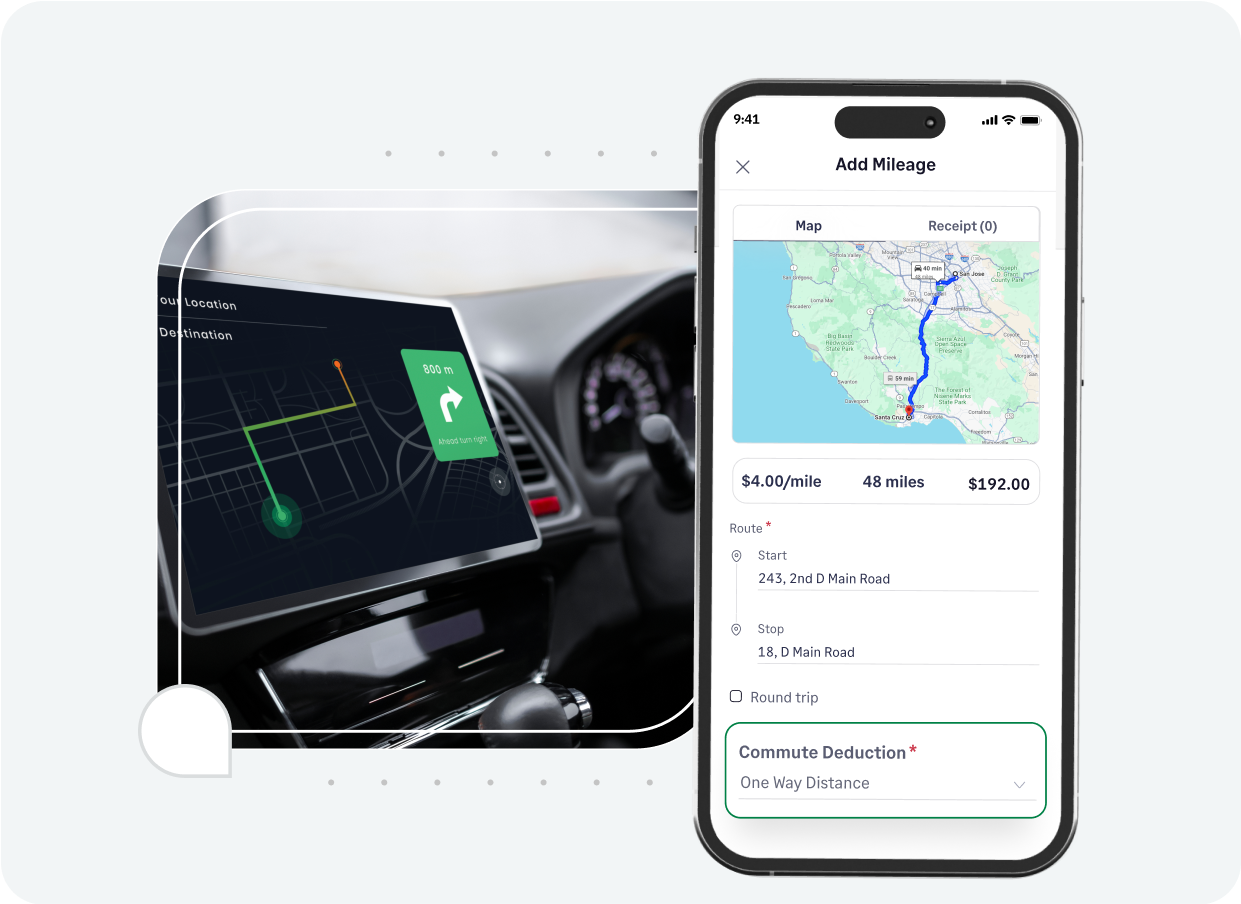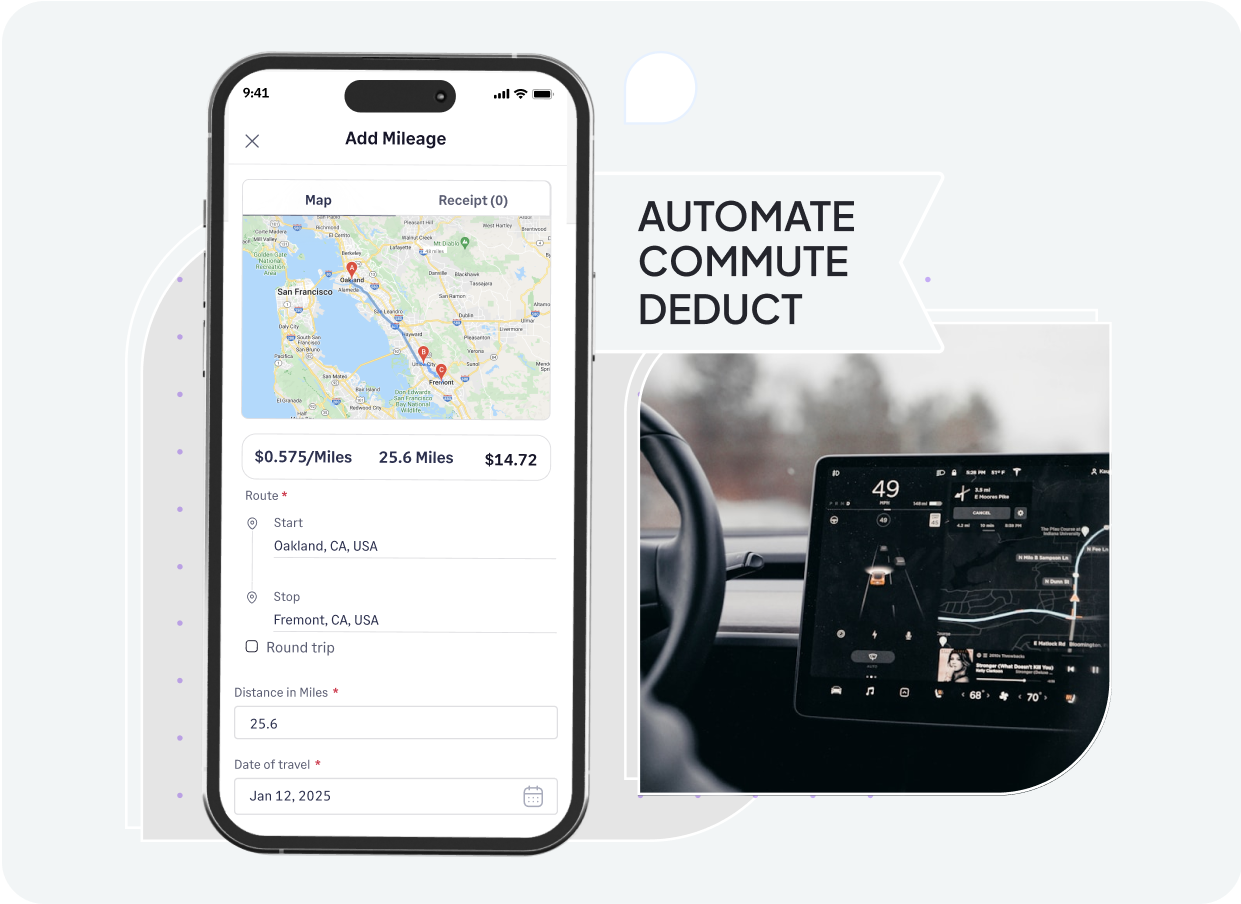For those navigating business operations in New Hampshire, understanding how to handle mileage reimbursement is a practical necessity. New Hampshire's approach relies heavily on federal standards, especially since the state's minimum wage mirrors the federal rate.
This guide provides clarity on the common rates and legal considerations for employers and employees alike.
The Internal Revenue Service (IRS) annually sets a standard mileage rate, which serves as a primary reference for businesses across the nation, including New Hampshire.
For 2025, the IRS has announced that the standard rate for business use of a personal vehicle will be 70 cents per mile. This is an update from the 67 cents per mile rate used in 2024.
Private sector employers in New Hampshire are not compelled by a specific state statute to use this IRS rate for reimbursing employees. However, many adopt it due to its clear advantages:
- It offers a consistent and widely recognized basis for calculating reimbursements.
- When reimbursements are made under an accountable plan at or below this federal rate, they are generally not considered taxable income for the employee and can be claimed as a tax deduction by the employer.
As of January 1, 2025, the key IRS standard mileage rates are:
- 70 cents per mile for business use of a vehicle.
- 21 cents per mile for medical or moving purposes (note: the deduction for moving expenses is currently limited to active-duty members of the U.S. Armed Forces).
- 14 cents per mile driven in service of charitable organizations.
Other relevant rates in New Hampshire include:
- New Hampshire State Employee Rate: The State of New Hampshire establishes a mileage reimbursement rate for its employees who use personal vehicles for official state duties. This rate is set by the Department of Administrative Services and aligns with the IRS standard business rate. Therefore, effective January 1, 2025, the rate is 70 cents per mile (up from 67 cents per mile in 2024).
- Workers' Compensation Medical Travel: New Hampshire law (RSA 281-A:23) ensures that employees injured on the job are reimbursed for reasonable travel expenses to obtain necessary medical care. The mileage rate for this purpose typically mirrors the rate set for state employees, meaning it is 70 cents per mile for 2025 (and was 67 cents per mile in 2024).
For historical context, here are the IRS standard business mileage rates from recent years:
New Hampshire Mileage Reimbursement Calculator
Quickly estimate your mileage reimbursement with our straightforward New Hampshire Mileage Reimbursement Calculator.
How to Use the Calculator:
- Select the correct tax year: Choose the year for which you're calculating reimbursement (e.g., 2025, 2024), as the applicable IRS rates can change.
- Input your business miles: Enter the total number of miles driven for business purposes using your personal vehicle.
- Calculate your reimbursement: The calculator will automatically apply the official IRS standard mileage rate for the selected year and display your estimated reimbursement amount.
This tool provides a clear estimate based on federal standards, valuable for both those submitting and those processing mileage claims.
Calculate
Results
Some Important New Hampshire Mileage Reimbursement Laws
While New Hampshire does not have a specific law requiring all private employers to reimburse for business mileage, key state and federal regulations shape employer responsibilities:
1. New Hampshire Minimum Wage Law (RSA 279:21)
New Hampshire's minimum wage is directly tied to the federal rate, which is currently $7.25 per hour.
This is a fundamental consideration: employers must ensure that any unreimbursed, necessary business expenses, such as mileage driven for work, do not effectively cause an employee's earnings to fall below this minimum for the hours worked.
Tipped employees must receive a base rate of at least 45% of the minimum wage ($3.27 per hour).
2. Workers' Compensation (RSA 281-A:23)
State law mandates that employers provide for reasonable medical expenses for work-related injuries, which includes the cost of travel to and from medical appointments.
The mileage reimbursement for such travel aligns with the state employee rate (70 cents per mile for 2025).
3. Absence of General Private Employer Mandate
Beyond ensuring minimum wage compliance and fulfilling workers' compensation obligations, New Hampshire law does not impose a general requirement on private employers to reimburse for mileage.
Therefore, the specific terms of reimbursement are typically determined by individual company policy.
4. State Employee Travel Regulations (MOP 1301.02.f)
The New Hampshire Department of Administrative Services sets clear rules and rates for state employee travel, ensuring that reimbursement for using a personal vehicle aligns with the IRS standard rate.
New Hampshire Mileage Reimbursement Law vs. Federal Law
In New Hampshire, the approach to mileage reimbursement is largely influenced by federal standards, with state laws reinforcing these in key areas like minimum wage and adding specific provisions for workers' compensation.
Fair Labor Standards Act (FLSA)
The FLSA is the bedrock federal law. It requires that employees earn at least the federal minimum wage ($7.25 per hour) "free and clear"—meaning after accounting for any job-related expenses they've paid out-of-pocket, like mileage for business travel.
If these unreimbursed costs drop an employee’s effective pay below the federal minimum, the employer is responsible for covering the difference.
New Hampshire's State Laws
The state laws interact with this federal framework as follows:
- The state's minimum wage, as per RSA 279:21, is explicitly set at the federal rate of $7.25 per hour. This means compliance with the New Hampshire minimum wage concerning unreimbursed expenses directly aligns with federal FLSA requirements.
- State law (RSA 281-A:23) specifically provides for mileage reimbursement related to workers' compensation medical care, tying the rate to that used for state employees, which in turn follows the IRS standard.
IRS Regulations
The standard mileage rates published by the IRS (e.g., 70 cents per mile for business use in 2025) are primarily for federal tax purposes. They aren't laws that compel employers to pay that exact reimbursement amount.
However, their significance lies in the tax treatment: if an employer uses an accountable plan and reimburses at or below these IRS rates, the reimbursement is generally not considered taxable income to the employee and is a deductible expense for the employer.
This makes the IRS rates a common and practical standard for New Hampshire businesses.
How Sage Expense Management (formerly Fyle) Can Automate Mileage Tracking
Take control of mileage reimbursement with Sage Expense Management's smart automation. For New Hampshire businesses looking to enhance accuracy and reduce administrative overhead, we offer a modern solution.
- Reliable mileage logs: Automatically tracks miles driven using Google Maps for precise and verifiable records.
- Custom rate application: Supports IRS standards, state-specific figures (like NH state employee rates), or unique company policies, applied instantly.
- Simplified commute management: Helps clearly define and subtract non-reimbursable daily commute travel for compliant claims.
- Automated claims for frequent routes: Allows employees to set up recurring trips once, letting Sage Expense Management handle future submissions automatically.
- Proactive policy adherence: Integrates your company's travel rules to check and flag non-compliant expenses before approval.
- Effortless accounting sync: Connects directly with popular accounting systems like QuickBooks, Xero, and NetSuite for streamlined data flow.
- Prompt ACH reimbursements (US only): Speeds up the reimbursement cycle with direct deposit for approved employee mileage.
Sage Expense Management empowers New Hampshire companies to manage mileage efficiently, ensuring compliance and saving valuable resources.


































